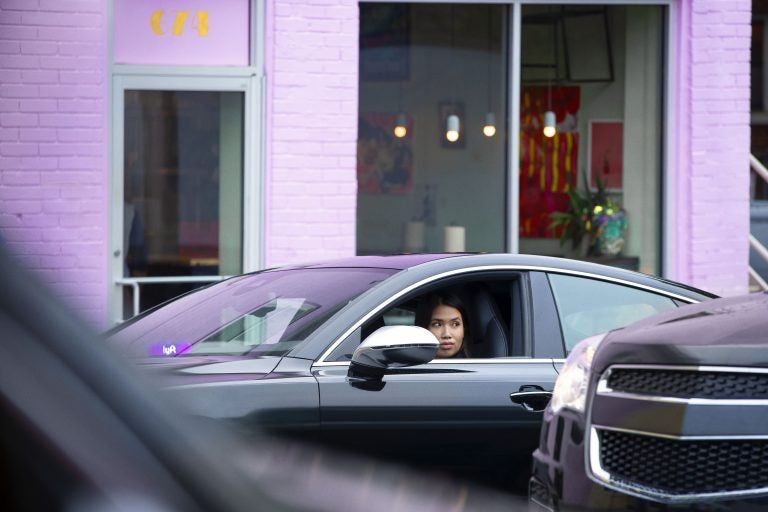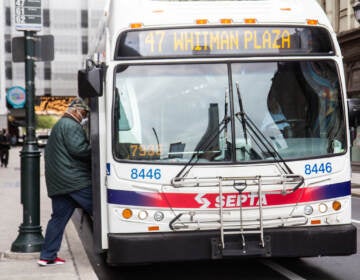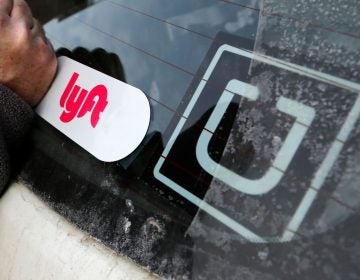Lyft is partnering with a Philly social service agency to help people get to work
The ride-hailing service will issue 300 ride credits worth $10 each for clients of Philadelphia Works looking to secure employment.

A Lyft driver navigates traffic. (Courtesy of Lyft)
Ride-hailing company Lyft wants to improve job access by providing transportation to job-hunters. The company recently launched its Jobs Access Program in Philadelphia by collaborating with Philadelphia Works, a non-profit workforce development organization, to help those transitioning into employment.
The program will issue 300 ride credits worth $10 each for clients of Philly Works looking to secure employment or training that may be too far for public transportation.
The credits will expire at the end of February, and the organization will evaluate the impact of the program.
“We’re always looking for ways in which we can increase access to people in need,” said Angela Bowie, public policy manager for Lyft. “Transportation is always a problem with low-income individuals, and we want to be able to remove that stress, that barrier that people have.”Philadelphia Works serves 40,000 people annually and typically gives SEPTA tokens to clients for transportation.
Kataney Couamin, manager of integrated systems for Philadelphia Works, says the hope is once clients secure jobs they’ll be able to pay for transportation. If not, Philadelphia Works will continue to support them “into long-term sustainable solutions.”
“The public transportation system is not at all out of the question,” Couamin said. “It’s really how do we secure them getting that job.”
The program comes as the city is working to ease traffic congestion and carbon emissions, which ride-hailing contributes to significantly. The vehicles add about 200 million car miles to city streets, according to data provided by the city.
Kelly Cofrancisco, a city spokesperson, applauded Lyft’s investment in helping people connect with employment but acknowledged the service’s environmental impacts.
“Philadelphia has numerous competing interests vying for limited curbside space,” Cofrancisco said. “As we continue to explore and implement ways to reduce not only congestion but our city’s carbon footprint, we maintain that transit, walking, and biking are all more efficient at moving people than travel by automobile,” she said.
City councilman Derek Green says with more than a quarter of residents living in poverty, there is room for Lyft to help.
“We are the biggest city with the highest level of poverty,” said Green. “And so we got to balance both issues. It’s not an either/or. If someone does not have a job, they’re not able to have the resources to make their home more sustainable and have the ability to reduce costs and expenses.”
Transportation makes up about 17% of the city’s carbon emissions, and a recent study found that congestion in Center City costs the city more than $150 million annually in lost time. The report argues that low-income riders bear the brunt of the loss since higher-income riders can opt-out for other modes of travel, such as ride-hailing services.
However, Lyft announced last year rides that are now carbon neutral thanks to investments in emission-mitigation efforts, and that the company partnered with public transit agencies in other cities. Bowie says the company is invested in promoting sustainable modes of travel.
WHYY is your source for fact-based, in-depth journalism and information. As a nonprofit organization, we rely on financial support from readers like you. Please give today.







